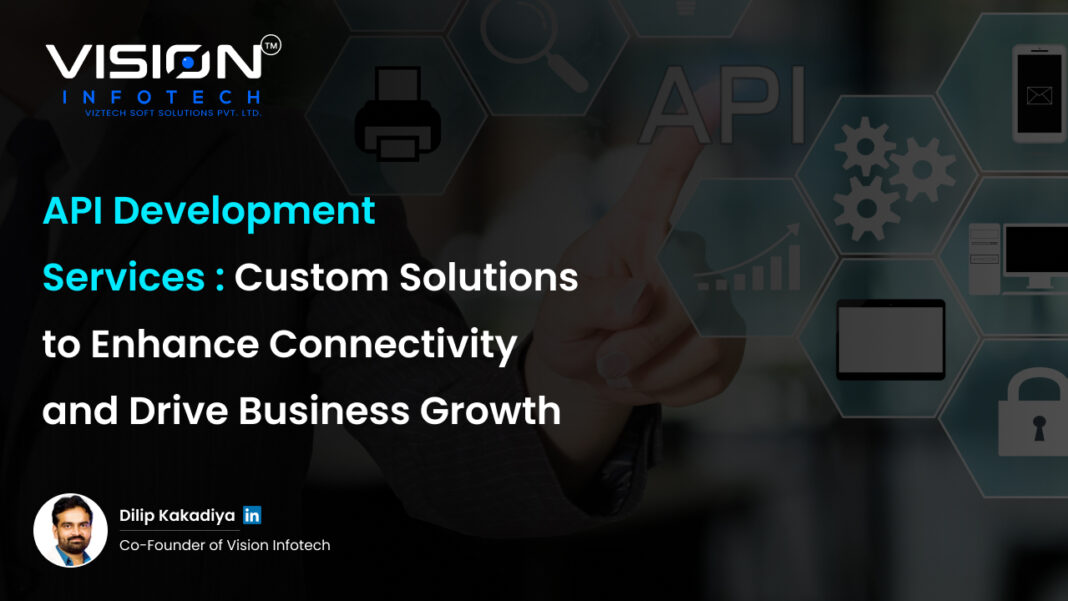Introduction to API Integration Services In today’s digital landscape, businesses rely heavily on API integration services to streamline operations and enhance the user experience. APIs, or Application Programming Interfaces, allow different software systems to communicate with one another, enabling businesses to automate processes and offer seamless connectivity across platforms. API integration development plays a vital role in enhancing the efficiency and functionality of various software systems. Whether you need to connect your internal tools or integrate third-party services, API integration is key to unlocking the full potential of your digital infrastructure.
What is API Integration?
API integration services involve connecting multiple applications through APIs to ensure data flows smoothly between them. With APIs, systems can “talk” to one another, exchange information, and perform actions without human intervention. This automated communication reduces manual data entry and the risk of errors. With the right API integration development, businesses can ensure that different applications work together seamlessly, enhancing both productivity and user experience.
Why API Integration Services Matter for Modern Businesses API integration services have become critical for businesses looking to scale and adapt to changing technological landscapes. As businesses adopt more software applications, the need for seamless communication between these systems becomes essential. A well-executed API integration development project allows businesses to synchronize data, automate workflows, and ensure that their software tools are performing optimally. For example, integrating CRM systems with accounting software or customer support tools can significantly improve operational efficiency.
Key Benefits of API Integration Development
Improved Efficiency: API integration services eliminate manual processes, allowing systems to work together in real-time. This leads to faster operations, increased accuracy, and more efficient workflows.
Cost Savings: By automating processes, companies save on labor costs and reduce the time it takes to complete tasks.
Scalability: Businesses can easily scale their operations by incorporating new applications and services through API integration development.
Enhanced Customer Experience: Customers benefit from faster service, more accurate information, and seamless transactions when businesses adopt API integrations.
Common Use Cases for API Integration Services There are numerous scenarios where API integration services are beneficial:
- E-commerce Integration: Businesses can integrate their e-commerce platforms with inventory management and payment systems, allowing for real-time updates and a smooth customer experience.
- CRM and Marketing Automation: Connecting CRM systems with email marketing platforms or customer support software ensures that businesses have a 360-degree view of customer interactions.
- Financial Integration: APIs allow businesses to integrate accounting software, invoicing platforms, and payment gateways, ensuring that financial data is always up-to-date.
The Importance of Custom API Integration Development While there are many pre-built APIs available, custom API integration development is often necessary to meet the specific needs of a business. Off-the-shelf solutions might not fit every scenario, especially when dealing with complex systems. Custom API development ensures that businesses can connect their unique tools and workflows, creating a tailor-made solution that fits their operations perfectly.
Custom API integration development allows businesses to:
Build APIs that match their unique infrastructure.
Integrate third-party services that may not have pre-existing APIs.
Ensure that security and compliance standards are maintained during integration.
Challenges in API Integration Development While API integration offers numerous benefits, there are also challenges that developers and businesses must overcome. Ensuring that APIs are secure, compatible, and scalable can be complex. Additionally, API versioning and changes in third-party APIs can disrupt services if not managed correctly.
To mitigate these challenges, businesses should invest in expert API integration services. A team of skilled developers can ensure that the integration is seamless, secure, and capable of adapting to future changes.
API integration connects multiple applications, ensuring smooth data flow between them. APIs enable systems to communicate, exchange information, and perform actions automatically, reducing manual data entry and minimizing errors. This seamless integration enhances productivity and user experience.
As businesses adopt more software applications, the need for communication between these systems becomes essential. A well-executed API integration project synchronizes data, automates workflows, and ensures that all software tools work together optimally. For example, integrating CRM systems with accounting or support tools can significantly improve efficiency.
Choosing the Right API Integration Services Partner When selecting a provider for API integration development, it’s essential to choose a partner with experience in handling complex integrations. They should offer a thorough understanding of API design, security, and data privacy to ensure the integrity of your systems. Look for a service provider that can:
Provide customized API solutions.
Ensure smooth implementation and integration.
Offer support for future updates and maintenance.
Conclusion:
The Future of Custom API Integration Development As businesses continue to embrace digital transformation, API integration services will play an increasingly important role. From improving operational efficiency to enhancing customer experience, APIs are the backbone of modern digital ecosystems. With the right API integration development, businesses can ensure they remain competitive and adaptable in an ever-evolving technological landscape.
Read ALso:- Top 10 Industries That Benefit from Zoho Consulting Services


